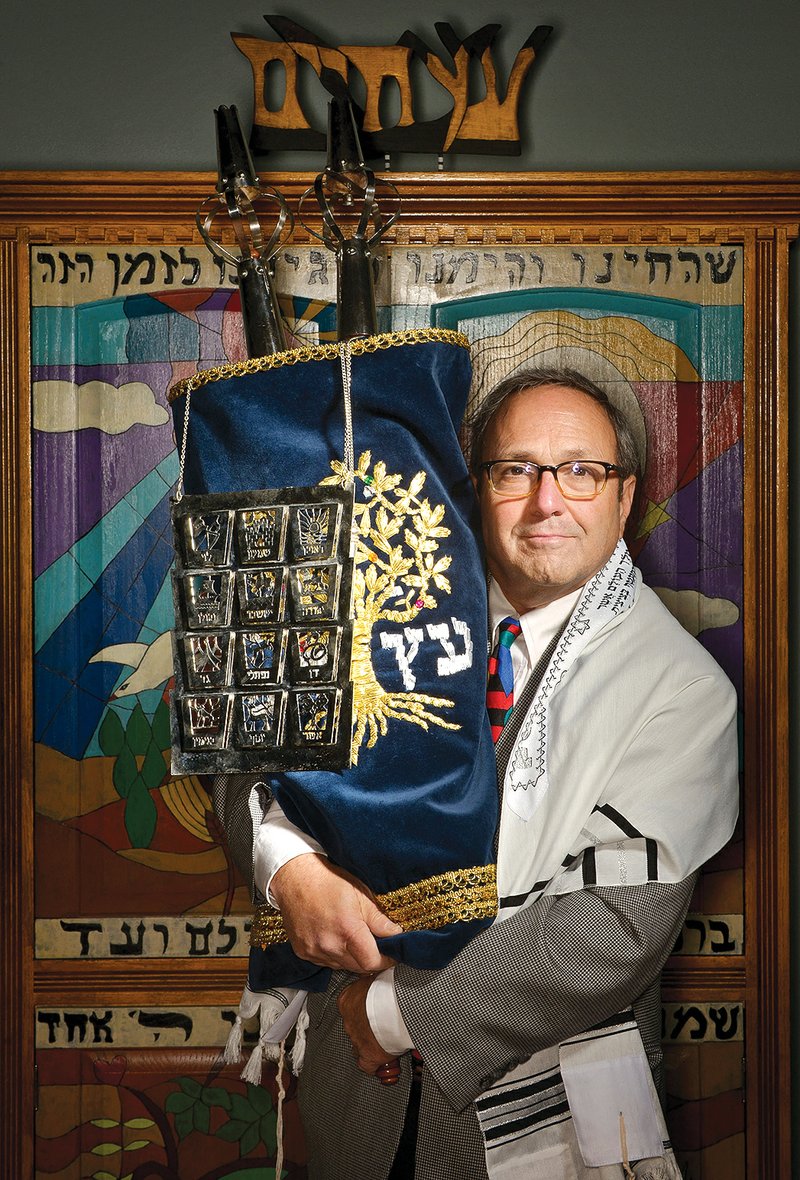Christians, Jews and Muslims all worship God. Is it the same God?
A man slipped while walking along the rim of the Grand Canyon. He grabbed a branch sticking out of the rocks. Hanging on for dear life he prayed: "God, I'm not a religious person. I try to do the right thing. I'm a good father and husband. I give to charity and live by the Golden Rule. I don't want to die. Help me!" He awaited an answer ... silence.
Frantically: "God, please save me! I'll go to church and Bible study, pray and spend my life serving You!" He waited ... silence.
Finally, whimpering: "God, I'm too young to die!!!! Please save me ... please, save me!"
And then, God spoke: "My child, I will save you. Trust in me, and do exactly what I tell you: Let go of the branch ..."
"Let go?" the man thought. "This is the answer to my prayer?" He looked down at the abyss and up at the sky, not happy with the option offered to him. Looking up, he cries: "Is there anyone else up there?"
At moments of ultimate concern, Jews, Christians and Muslims all pray to the God who we hope will save us. In a foxhole, fear equalizes faith. The purity and humility of praying is very much the same in moments of truth. The man on the branch called out for God, who is the same God many human beings turn to in distress. With life hanging in the balance, one could imagine him saying: "Hey, whatever your name is ... save me!"
If God is God, then no matter how we call out to God, why wouldn't God receive every prayer?
Another way of prayer is shaped by what our respective traditions reveal about the Divine Will and Redemption as expressed in Scripture. Each tradition speaks its own language, has its own narrative, rituals and symbols to describe these primary aspects of God's nature: Creation, Revelation and Redemption. Each tradition tells the story through its own lens. This prayer powerfully helps us clarify our religious identities, but often leads to beliefs that assert the superiority of one religious faith over another.
If religion dominates our spiritual awareness, to the exclusion of others, then yes, I believe we are praying to the God of our religion. But, when, we pray with humility and without a will to change the faith of others, I believe at those moments we are all worshipping the One God of All.
At its best, religion instructs us to be loving, just, compassionate and committed to turning faith into action to bring goodness into this world, lessen suffering and advance respect for all human beings.
I believe religions are "languages of faith," trail guides to ascend the proverbial "Holy Mountain." While the paths may differ, and the ways in which God is revealed are varied, I believe there is One God of All that is well beyond religion. Religions are diverse. But ... God is One.
If God is One, inclusive, loving and true, then why is so much of the world preoccupied with making their religion triumph over others? War is so often the result of religious zealotry. The term, "Soldiers for God"? God does not want soldiers or zealots. God wants loving and gentle shepherds.
No matter if one believes in a Trinity or Prophet or Word, or any embodiment of the Divine Nature -- God is ultimately beyond all of it. Some people worship their religion so much that God becomes eclipsed. Whether Jew, Christian, Muslim, or any other tradition -- we all know many so-called faithful people who live unethical lives. They proclaim religion, but are not connected to a spiritual life. We also know people who are loving, kind, caring and beautifully spiritual in their lives, and have no connection to organized religion at all. If God would reject the hypocrite, then why wouldn't God accept those of pure heart no matter their faith or religion?
Why wouldn't God accept all human beings based on their character and goodness rather than through a single litmus test of religion? Would we say, in a world of thousands of languages, that one is superior? Would we say in a forest, diverse species of trees, birds or creatures of every type, that one is truer or best?
Religion isn't the problem. When people make religion un-God-like, that is the problem. One person's faith, too often becomes another person's genocide. Hitler used the notion of "the superior," "the most pure," "the select," to justify genocide. If Hitler is Hitler, the idol of "superiority," and God is God. Then God is opposite: God celebrates diversity, inclusion, love and peace, not exclusion or spiritual hegemony. With human history littered with the blood resulting from religious triumphalism, then why wouldn't God desire just the opposite?
A God who creates diversity in order to condemn it, or a mind in order to subdue it, seems very un-God-like to me. Religion often blindly encourages this terribly, contradictory understanding of God.
Do Jews, Christians and Muslims worship the same God? Sometimes.
When any of us prays to God, as if we have higher spiritual status -- then, yes, at those moments, we are praying to the God of our religion -- not, in my belief, to the One God of All. When we pray, each in our own way with humility and love, unfettered by judgment about how others pray or believe, and understanding that God is so Magnificent there is room in God for all who seek peace, not domination, spiritual or otherwise -- then we are praying to the same God, the One God. Pure and Simple.
Worship as an act of universal humility, gratitude and inclusion. Now, if God is God, then why wouldn't God want that?
NAN Religion on 03/07/2015

